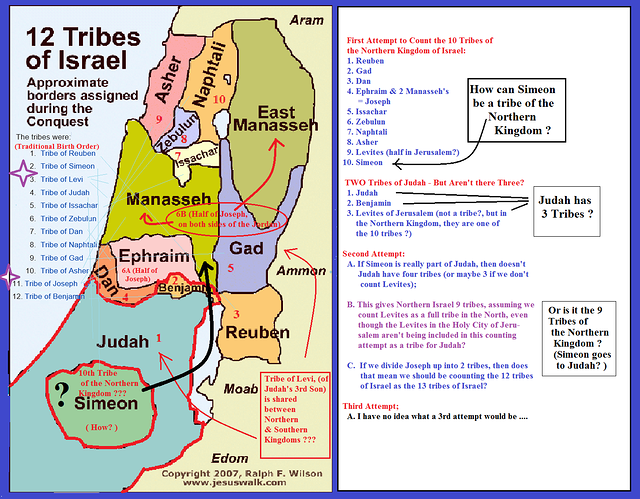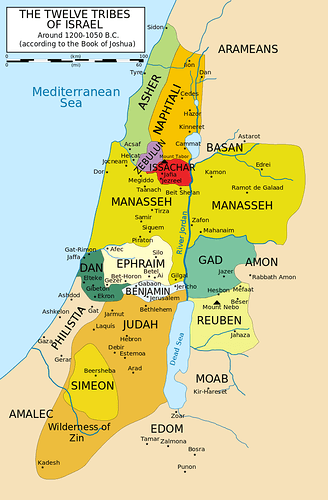Continuing the discussion from What biblical reasons are there to accept the scientific view of the earth as billions of years old?:
[Which was already. . . ] Continuing the discussion from The Problems with Bill_II's Idiosyncratic View:
^^^^^^^^^^^^^^^^^^^^^^^^^^^^^^^^^^^^^^^^^^^^^^^^^^^^^^^^^^^^^^
I thought I would start this thread to show that there’s really a lot more to resolve than simply Genesis 1 & 2, or the Firmament, or even God’s speech about his storehouses of Snow and Hail orbiting the Earth.
We still haven’t resolved how many tribes went to the Northern Kingdom. 10 right? I don’t know …
But @Mike_Gantt, before I launch into that issue, are you sure you want to go on record as saying God spoke, in the vacuum of outerspace, to create the Earth (if not the whole Universe)?
You write:
Actually, I take “God said” to be a central point of Gen 1. When people say that their only important takeaway from Gen 1 is “God did it,” I scratch my head. I wonder how they divorce the saying from the doing, given how the text repeatedly emphasizes this connection - and all the more so when you consider everything else the Bible says about God speaking. I would expect the minimum meaning any reader would glean from Gen 1 - if he were looking for a minimum - would be “God did it by speaking.”
As to your point about “nobody with ears were around to hear,” I don’t consider human beings to be the only beings. Therefore, just because there were no human beings around to hear God’s words does not mean that no beings heard them. What the equivalent of “verbalized literal audible words” is in the spiritual realm, I do not know; but it’s clear from the Scriptures that angels hear God speak."
End of Quote from Mike’s Post
Okay, yeah, I’m pretty sure angels have ears. But how do they hear something when there is no air to carry the sound to their ears? Further below I touch on telephathic communication, and speaking even if you don’t have a mouth…
Mike, have you stopped to consider what your words (highlighted above) sound like to modern generations quite familiar with the nature of vaccuum in outerspace?
- Does God have a body with a mouth and lips to form words?
- Does God have any aspect of a body to form words?
- Was God in the vacuum of space when he sounded those words? Or was
he in a barcalounger, enjoying an air-conditioned atmosphere at some
remote location when he spoke the words to create? - If he spoke the words in front of His Creation, can there be words if there
is no sound? How can there be sound in a vacuum? - If God could “utter” words in some telepathic way, isn’t it true that
telepathic communication still not speaking?
This is some kind of fringe hermeneutics … probably only one notch away from the communion wafer becoming a slice of God’s arm once it enters your body, and the wine becoming his blood.
I don’t know how you expect to resolve the questions you yourself are raising.
So take a break from it for a bit … Help me figure out how many tribes belonged to the Northern Tribe of Israel - - 10 tribes, right?
So how does Simeon serve as the 10th tribe of the Northern Kingdom?
Have you ever once seen a map of Simeon placing it in the North?
Voila … I have a chart where I try to add the tribes up for both Israel and Judah …
.
.
.
.
.

